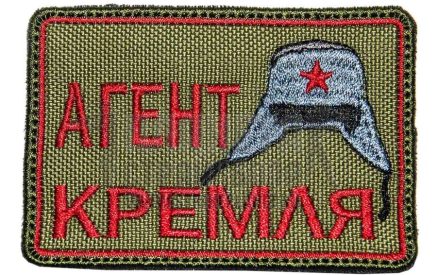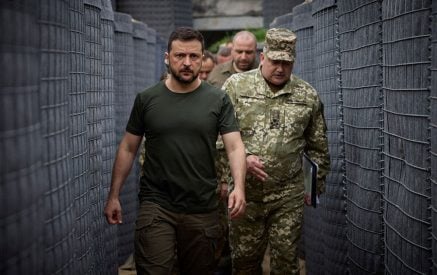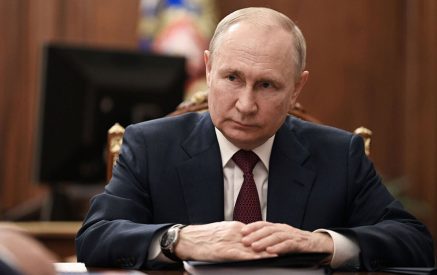As the Russian military continues its invasion of Ukraine, the Kremlin is also fighting a different kind of battle at home in its attempts to quash independent news coverage and dissenting narratives about the attack it launched on February 24.
Across Russia, journalists have been detained and their outlets investigated, blocked, and restricted from using social media. On Friday, March 4, Russia’s State Duma approved a criminal code amendment making “false” reporting on the war punishable by up to 15 years in prison. Some journalists have closed their outlets and fled.
Irina Borogan, co-founder with Andrei Soldatov of Agentura.ru, a news website covering Russian state surveillance, calls the situation in Russia “unprecedented.” Based in London, Borogan fled Russia last year out of concerns that she would be charged with treason over her journalism, which focuses on Russia’s state security services and online surveillance technology.
CPJ spoke with Borogan about the recent spate of draconian measures in Russia, access to information, and how she sees internet censorship evolving in the country. This interview has been edited for length and clarity.
Read also
The Russian government has long had independent media in its crosshairs, but the recent “false” news restrictions and the decisions of Dozhd TV and radio station Ekho Moskvy to close amid pressure make the situation seem particularly acute. Why is this happening now?
Irina Borogan: The independent media broadcasted and published information about the war in Ukraine. Under the current law in Russia, they have to say that it’s a “special operation” and the goal of the special operation in Ukraine is to “denazify” Ukraine. I understand for Western news [consumers], it sounds absurd or crazy, but it’s how it is for the authorities.
The independent media was just reporting information about what is going on. That’s what infuriated the Kremlin. If you try to look at the picture of what’s going on in Ukraine through the Kremlin’s media, you will be surprised to learn the airstrikes are precise, without civilian victims. That’s just crazy. Open RIA Novosti, TASS, or other state-controlled media and you’ll see an absolutely different picture [than in Western media].
I’m afraid of the repression against people who express positions that are critical of the Kremlin publicly. I don’t want to be pessimistic because some people who live in the country are already in a state of fear and I don’t want to be alarmist. But it’s clear that there will be more repression.
By trying to control the Ukraine narrative, it seems like the Kremlin is creating some sort of parallel universe. How effective will their attempts at censorship actually be?
Propaganda will always stick with the people who want to hear it and don’t care to verify what they are hearing on official [state-owned] channels. There are a lot of these people, unfortunately. Others will continue to search for other kinds of information.
The Kremlin has tried to block or slow down global social media networks and is trying to entirely block independent media within Russia. If you put people under enough pressure, it is possible to force them to delete accounts and stop broadcasting—that’s when circumvention tools [such as Virtual Private Networks, or VPNs] become useless.
Even when the coup d’état was attempted in 1991 by the KGB, Ekho Moskvy continued to broadcast. Right now they can’t.
In Dozhd TV’s last broadcast, they played “Swan Lake,” a reference to the 1991 attempted coup when Russian state television played the ballet on loop. What do you make of that?
It was a bit of humor—and also a hint that things are very, very bad.
What do you predict in terms of internet connectivity and access in the coming months?
Even more than now, people will have to use VPNs or TOR [software enabling anonymous communication] to access information on Facebook, YouTube, and Twitter.
Russia is not China. China started to build up its firewall at the beginning of the internet. Russia did not until 2012, before that the internet was absolutely free. There were few blockings and there were no rules on the internet. And thank God, Putin only started filtering the internet [blocking certain websites] 10 years ago.
The first internet filtering system was quite bad. But two years ago, in 2019, the authorities introduced the new internet filtering system in the country called “sovereign internet.” It is technically very sophisticated and quite effective. They were able to slow down Twitter a year ago and we see that now they are successfully blocking Facebook and other platforms and other media.
With sovereign internet blocking, Roskomnadzor, the state internet regulator, can basically flip a switch and block websites across the country. You push a button and block Facebook all over the country.
You’ve reported on quite a few conflicts, both from the front lines in Yugoslavia and Lebanon, and have also conducted investigations about the Second Chechen War. What role does information verification play in conflicts?
Information verification is important for both sides; both sides are involved in propaganda. But what we see right now is an incredibly stupid propaganda law. The Kremlin pushed forward this law [which punishes “false” news about the invasion with up to 15 years in prison] knowing full well that it is meant to prohibit any real narratives about the invasion from seeping out. But the Kremlin also thought that Russia would take control over Kyiv in the first few days after the invasion. Now that [the invasion] is turning into a long and contentious war, the propaganda can only do so much and state authorities are trying to make it even more difficult for news about the invasion to spread domestically.























































